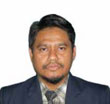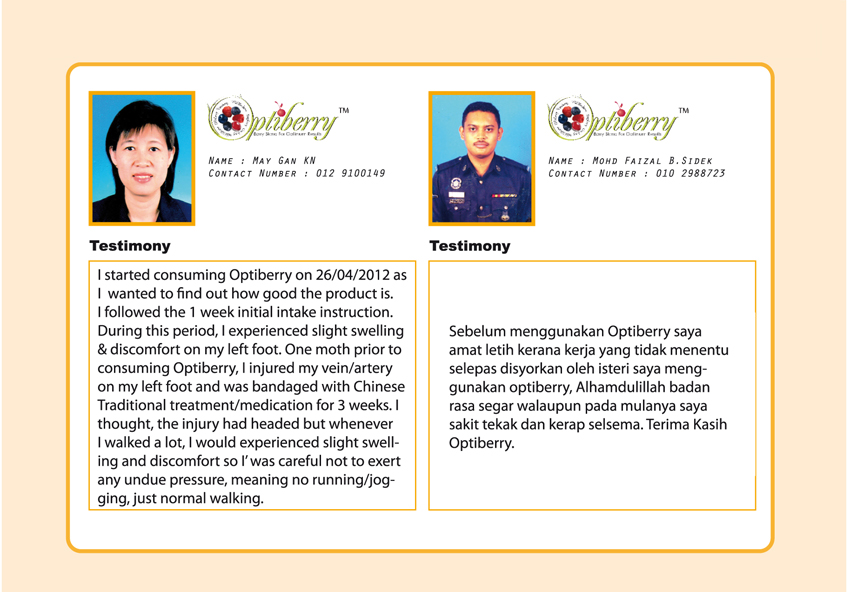MFLEP is my abbreviation of Minerals,Forests,Land.Energy and Politics. These are perpetual losses throughout the years and to this present time.Politics is our only hope to at least recoup the loss of minerals,forests,land and energy even if its only the crumbs left.But again,is it a big "yawn" for all of us? I mean "politics"; Is it such a hopeless situation and unattainable,period?
Minerals were taken out right in the land of our bidayuh brothers in the earlier days.To be fair to the Brookes and thereafter the British Colony, minerals were the only "concession" that they had given to companies to mine.Our earlier masters never touched the rest e.g forest and land,eventhough they could have, as has been done in Malaya then, when the British companies were leased land to plant rubber.
Moving forward to this present time when our own people start to rule our beloved State,the minerals,forests,and land have long been taken.And now, the big buzz word, ENERGY, is also on the way to be taken. The 12 dams!! Is it not ENERGY? And all of these are taken away right in the middle of the Dayak hinterland.
And who will benefit from all of these? The Dayaks?
At the launch of SCORE(Sarawak corridor of renewable energy) on 11th Feb,2008,12 MOUs were signed by companies to develop SCORE involving more that 100 billion ringgit,and your guess is as good as mine, no Dayak based company is involved,not even from any member of the Dayak Chamber of Commerce and Industry.
Where shall we go from here?
Prices of palm oil which is one of the principal exports from Malaysia have dropped sharply from RM4,330 a tonne to RM1,460 a tonne. Crude palm oil (CPO) futures prices on Bursa Malaysia Derivatives Berhad were down for the third straight day amid growing pessimism over the global economic outlook this week.
Reports say that global financial problems and uncertainties over the economic climate was dampening demand and keeping buyers away. Many importers had opted to default on their contracts as the prices of CPO had dropped sharply and banks importing countries are more cautious in extending credit facilities.
Hence some importers of the commodity faced difficulties obtaining credit line from their banks, thus they cannot open LCs.
“If the prices continue to drop below RM1,300 a tonne, many planters will suffer heavy losses and may ‘ngiling their tikai’ (roll their mats),” says an economist.
In Sarawak, some two million hectares of lands have been approved for oil palm plantations, the bulks of these lands are Native Customary Rights (NCR) land which has been seized from the natives.
While the State government and big oil palm estate planters are having sleepless nights over the down trend of prices of CPO, the native land owners are jumping with joy and even consider it as “divine intervention”.
“God knows how to stop these big companies from further taking away our NCR land and destroying flora and fauna. It is one way God stops them from destroying His creations,” said an NCR land owner, hoping that many of them would abandon their estates.
Since the amendments to the Land Code in May 2000, the owners of the NCR land have been having not only nightmares, but have also been criminalized for owning the land; many have been jailed in defending their ancestral lands and many have taken the government to courts.
But taking the government to courts is very expensive affair. First, the landowners have to deposit RM10,000 to the court. Second, they have to come up with the legal fees (fortunately a few of the lawyers do not ask for legal fees.) Third, the burden of proof is on the landowners. The only ones who can help the landowners with the proof are the headmen, and community leaders, but here again the government has already warned them not to be witnesses.
Using private surveyors to survey their land with the aim of providing the proof is not allowed after the government passed amendments to the Land Surveyors Ordinance in 2001 which essentially remove the ability of natives to prove the extent of land on which they exercise NCR via increasingly popular communal effort – the community mapping.
It is obvious that the land owners have to pass so many hurdles, legal or otherwise, to prove that their lands belong to them. And as they are helpless, God has mercy on them and hears their prayers. Praise is to the Lord my God. Amen.
Dayak must learn not to betray one another
Written by; Dr. John Brian Anthony
This thought come to my mind when i reflect on some of the root cause of Dayak inability to put right what is wrong currently. We have a big force that clashed against each other - it resides in our value system and practices. Betrayal is just one of such substantial factor to address if we are to move forward. We need to understand betrayal as a practice in order to find a good solution to the Dayak slow progress within the Malaysian community.
What is betrayal?
The Oxford Dictionary says: be disloyal to, assist the enemy, give up person etc to the enemy, BETRAYAL: hand over.
According to the Wikipedia Betrayal:
“is a form of deception or dismissal of prior presumptions, is the breaking or violation of trust, or confidence that produces moral and psychological conflict within a relationship amongst individuals, between organizations or between individuals and organizations.
Often betrayal is the act of supporting a rival group, or it is a complete break from previously decided upon or presumed norms by one party from the others. Someone who betrays others is commonly called a traitor or betrayer.
Betrayal is also a commonly used literary element and is often associated with or used as a plot twist.”
Is betrayal of Dayak race by Dayak an acceptable practice?
Maybe we do not realize that Dayak do betray each other a lot especially in our political struggle and effort to speed up economic progress for our Dayak community. Some senior politician called it “stabbing from the back” in its political context. Such betrayal brought many untold failures to our community in political leadership and those that benefitted from such act is usually small and became more powerful politically.
An act of betrayal weaken the Dayak community. Be it in our daily life, our education, our economic well-being, our politic to sustain power or leadership in our community; it is a negative value. It creates a lot of uncertainties and mistrust between the Dayak communities, with individual and organization and even on personal basis. It only serve to benefit those who want to see our community fail in their effort to progress.
As a community we must not betray each other - the question is are we? Is this one root cause of why we feel that we Dayak are not united in our purpose and cause. Do we common Dayak feel that our political leaders are leading us towards our common goal of community progress or do we feel that our leaders are doing things that is against our community wants and needs?
Why is betrayal happening?
It happen mostly because of our various perceived needs. Betrayal cannot be a singular act. There must be a loser and benefiter from a person act. Are these losers the Dayak communities and the benefiters are the BN political leaders? If that is so, why is it so difficult for us to make the change?
Maybe because in “betrayal” money is an important ingredient. Instead of using the money to enable the Dayak community to progress in education, business etc, the money is used to pay for traitors to fail the Dayak dream.
Is our elected representative acting like traitors to us Dayak?
Many people have asked that how is it possible that their land are issued to “provisional lease” owner for plantation development and the Elected Representative of the constituency vouched that he is not aware of the matter. Is it not customary that the Elected Representative must be consulted first by the government before any project is implemented in his constituency.
Are not some Elected Representatives directly involved in owning plantation share holding, while some made effort to develop the land while others sell it to get rich quick?
If an elected representative is not consulted, then his reason for being elected as the people representative in the constituency is a fallacy. A window dressing just to serve a few State BN political elites personal interest. Or he may be a just good for nothing person elected to an important position to which he has no right to be there in the first place other than he is planted by certain political leaders.
Is betrayal a result of Dayak warring history?
Hopefully, it is not. If it is, we Dayak must learn to forget these things quickly. We must live in relevant times and behave accordingly.
What would you think happen if ONE Dayak community thinks that his/her community is superior in history, in intelligence, in material form, in political power than the others- does that not create a source of disunity among Dayak?
We need to look at this issue of “betrayal” long and hard because its existence will bring negative result to Dayak unity. Without unity we cannot really make the change in our current situation. Does saying nothing on behalf of Dayak interest by our Dayak elected representatives in Parliament and DUN constitute betrayal of our trust in them to represent Dayak common people.
Conclusion
We Dayak must develop a new value; NEVER TO BETRAY ANOTHER DAYAK. We must teach this value to our children. We may be different ethnically, but we are one Dayak in our DAYAK DREAM.
In that we may have different Dayak Association but we must maintain one Organization to act as an Umbrella body. In education - we can have various graduate association, but we must maintain one Dayak Graduate umbrella body. this is the same with Dayak Cultural Association, Dayak Business Association, Dayak Sport Association and one day even a Dayak Political umbrella body.




















![[persona-1.jpg]](https://blogger.googleusercontent.com/img/b/R29vZ2xl/AVvXsEhdlUdKM9p3wjHQ82JAAYrcDgaSwRKghyaZ8vsjmb2nR39C_tOwz4n2bTANThABRbeizpf7mTpIornirzubEgrMYtXyW1BzWKH7jEHSe5FnFx-slp8fNWHZM_qBwZ0aXAMjMX_7TnehR2A/s1600/persona-1.jpg)



























 "Short of jumping for joy, [the VERIUNI laundry soap] is the most exciting product for the laundry that I have found. I buy [the laundry soap] in a Gallon at $21.95. I put a pump in the gallon (best value) and two squirts into the laundry. My whites have never been whiter and my cloths don't have the perfume smell that the store brands do. Two squirts in a full load equal less than 1/4 cup, less than two ounces. With one gallon equaling 128 ounces, that is 64 loads of laundry, or $0.34 a load. (If you add shipping, the cost is $0.50 cents per load.) That's almost half of what [many major store brands] require. Best yet, your cloths don't smell! Simply amazing. Check the link and try a bottle. You can buy by the quart, but with shipping and handling, a gallon is best. The entire product is returnable. But...you won't return it because you will love it. It's great! This is one of the best lines SFI carries."
"Short of jumping for joy, [the VERIUNI laundry soap] is the most exciting product for the laundry that I have found. I buy [the laundry soap] in a Gallon at $21.95. I put a pump in the gallon (best value) and two squirts into the laundry. My whites have never been whiter and my cloths don't have the perfume smell that the store brands do. Two squirts in a full load equal less than 1/4 cup, less than two ounces. With one gallon equaling 128 ounces, that is 64 loads of laundry, or $0.34 a load. (If you add shipping, the cost is $0.50 cents per load.) That's almost half of what [many major store brands] require. Best yet, your cloths don't smell! Simply amazing. Check the link and try a bottle. You can buy by the quart, but with shipping and handling, a gallon is best. The entire product is returnable. But...you won't return it because you will love it. It's great! This is one of the best lines SFI carries."



























No comments:
Post a Comment